Directed by Catalin Rotaru and Gabi Virginia Sarga –
A courier takes a hitchhiker on the road. When the hitchhiker warns him that the end of the world is around the corner, the courier labels him as crazy, without knowing this accidental encounter will change his life forever.
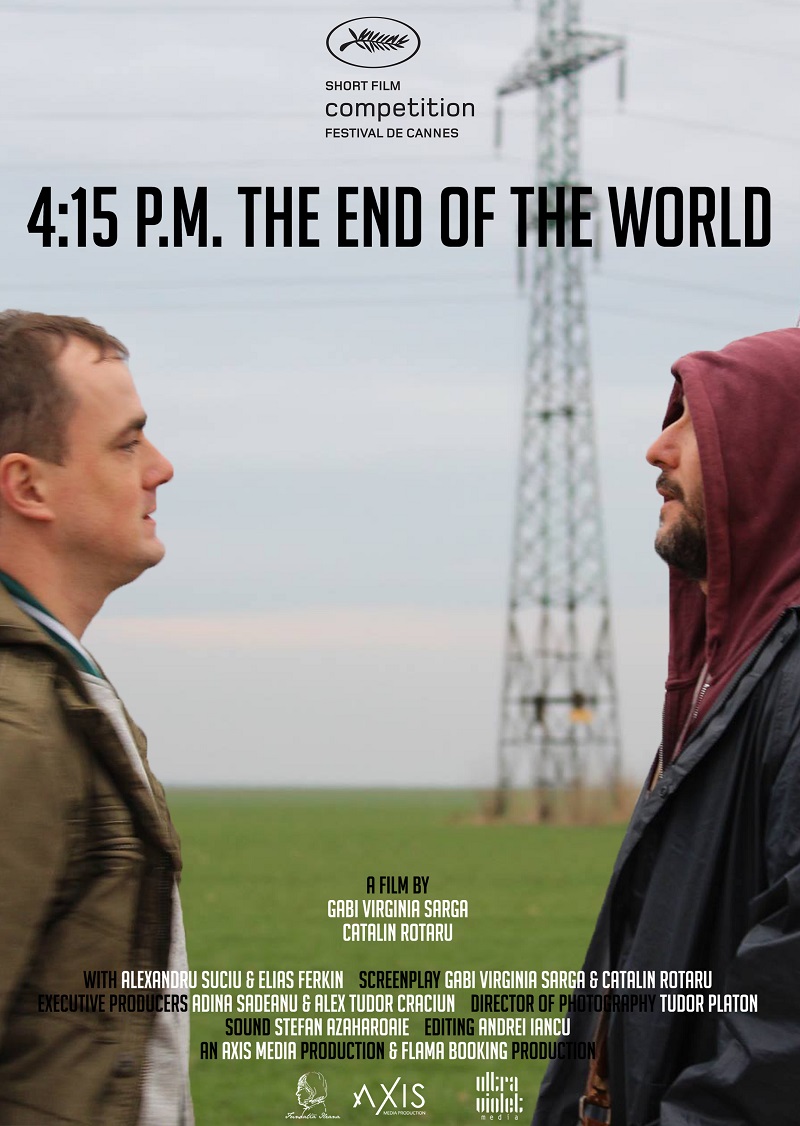
GFM: Please describe what 4:15 The End of the World is about.
Gabi: To me, this movie is about the ability of a modern person to ask himself questions and find answers to his dilemma – this is one of the main ideas behind the movie.
GFM: You are both first time directors with extensive backgrounds in television writing. How did your collaboration on this project come about?
Catalin: We have a pretty rich experience together in this respect.
Gabi: We’ve known each other for about seven years and went to the same university and were in the same year.
Catalin: Both of us graduated from the big theatre and acting academy in Bucharest.
Gabi: We work together because we are together! We also work together on TV series and documentaries. We are working together all the time, and this has prepared us for what was next, which was this film.
Catalin: It was a very natural step for us.
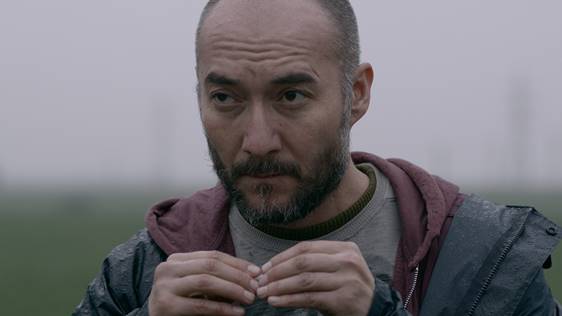
GFM: Was this film incubating between the two of you for quite a while?
Catalin: Yeah! For quite a while we thought a lot about this idea. We exchanged thoughts, we couldn’t sleep – we wanted to find answers.
Gabi: And when we found the answer we’d arrive at another question.It was very hard to write this.
Catalin: Of course we have a lot of experience writing. We’ve written thousands of pages and different kinds of work and sitcoms and so on. The real difficulties with this short movie, however, are the questions which arose from the situation we proposed.
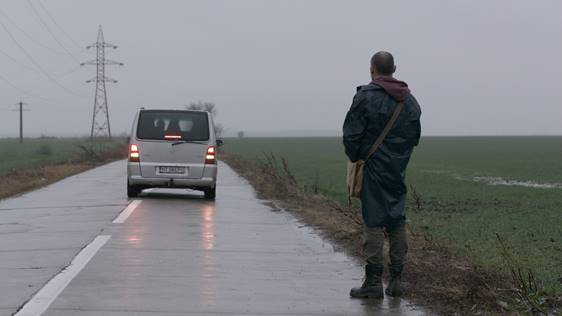
GFM: As new directors, how did you prepare yourselves to work with your actors?
Gabi: It wasn’t very hard because we studied acting at university, so i’m not going to say it was a piece of cake, but it felt quite normal. Catalin is also a theatre director.
Catalin: Yes, I have directed a few plays on stage, so I have experience working with actors. The plot of this short movie is not very simple for the actor and there was a very thin line between it being a good movie and, let’s say, a catastrophe. So we had to rehearse for at least a week with the actors. We love our actors!
Gabi: The part that intrigued us was finding the right kind of actors for particular characters because you want them to be unique. The difficult part in working with them was to make them understand our vision of the character and how to grow into that character and embrace this vision. This was a challenge.
Catalin: But it was a lot of fun working with them.
Gabi: It was a great joy working with them and the entire team.
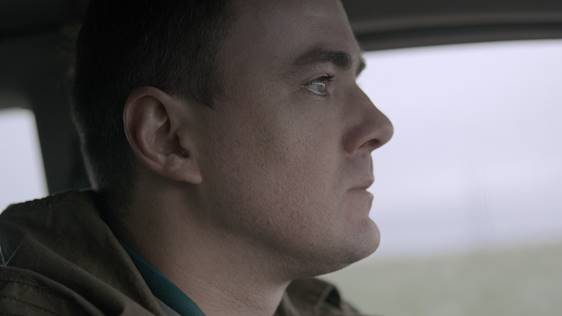
GFM: Principle photography was done over just four days. Can you talk about the product of the film and what challenges you overcame?
Catalin: We actually only had three days of shooting, but it became four days because on the first day of shooting we had a brilliant situation. Our van broke. The van has an important role in our movie so we couldn’t film it without the van. However, the whole team was wonderful. Everybody became an engineer and gave advice regarding the engine – “do this, do that”. We were annoyed and frustrated but this was a gift for us. That first day when we couldn’t shoot anything was a good experience and the best thing that could have happened to us.
Gabi: The only problem so to speak was that obviously with the film being low budget, the broken van caused a bit of a money problem down the road, but our producers were there and they supported us.
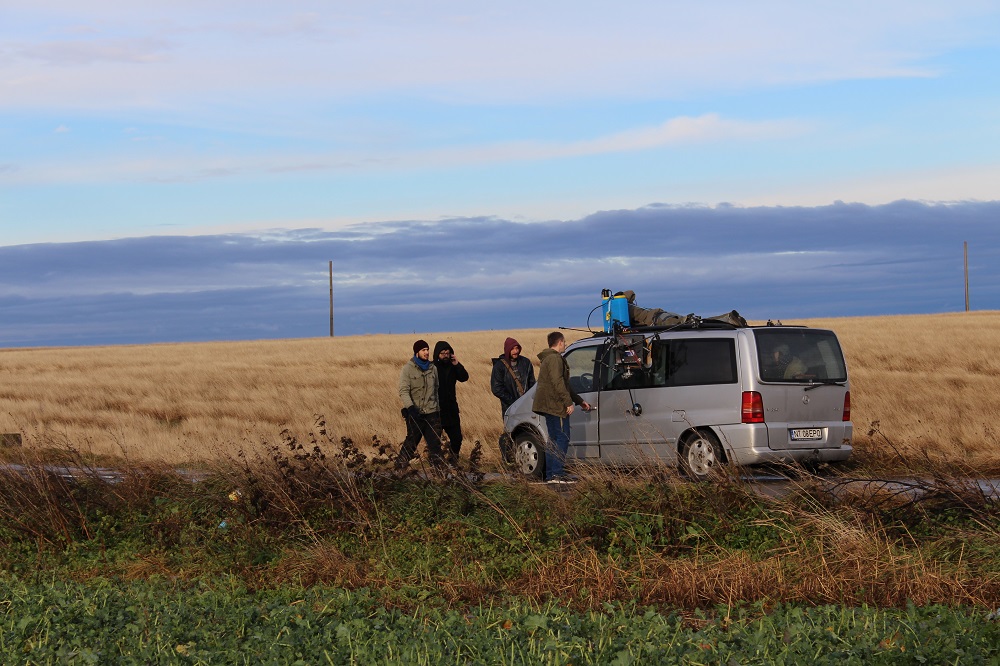
GFM: You’ve said that you feel the audience is a participant in your work. Can you elaborate on this in the context of the film?
Gabi: Generally speaking we think a movie is for the public and should be made for the public.
Catalin: Yeah, the public is the final purpose of every movie. We don’t appreciate when a viewer can see the script and the director. We really wanted to create a movie where the audience would not feel the hand of the director or screenwriter so that the story unfolds in a way that is natural.
Gabi: In this particular movie we wanted the audience to have choice and for the story to be open to interpretation.
Catalin: We didn’t want to make a statement. It’s not only our way and the way in which we think about this story. We want to give the viewer the freedom to choose and ask questions.
GFM: The Short Film Competition and Palme dÓr are the highest things a filmmaker can hope for and here you are as two first time directors and you’re in that competition on your first try. Was this a goal for you and the film all along?
Gabi: Let me ask you a question – do you know of a director who doesn’t want to go to Cannes? Cannes is so big! It was a real surprise for us. We want to go to festivals all over the world with our movie, but Cannes – it’s something else – it’s very, very important to us. It’s not ‘that we had Cannes in mind when we wanted to make the movie, because it’s so big, but we wanted to see our movie in as many festivals across the world as possible.
Catalin: We made this movie because we love movies and we wanted to tell a story. We didn’t think about prizes and so on. Of course, now that we are in Cannes, which is a big surprise, we are so happy and excited about it.
Gabi: At the same time, if you go to Cannes with your first film what do
people expect from you after that? This puts you under pressure.
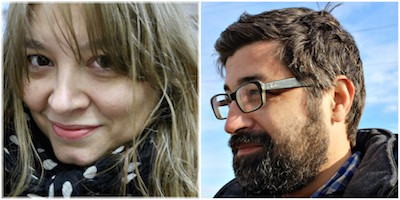
directors Catalin Rotaru and Gabi Virginia Sarga